No products in the cart.
Uncategorized
Global Trends in Banning Single-Use Plastic Products: Latest News
In response to the alarming plastic pollution crisis, numerous countries and territories worldwide have taken significant steps to address the issue by implementing bans on single-use plastic products. These bans primarily target commonly found items such as plastic bags, straws, cutlery, and food containers that are difficult to recycle. Let’s explore some of the latest developments in the global movement to ban single-use plastic products.
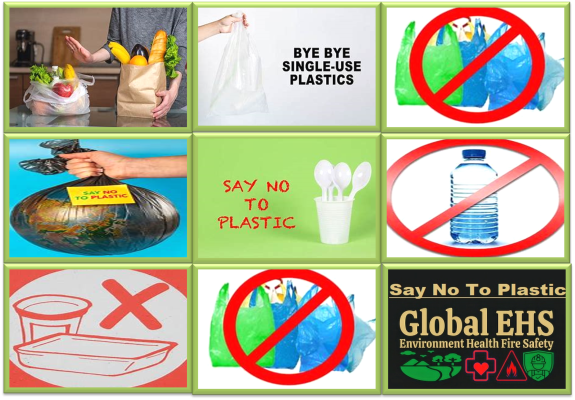
New Zealand: Expanded Ban on Single-Use Plastics from October 1, 2022
New Zealand has emerged as the latest country to expand the scope of its ban on single-use plastics. Starting from October 1, 2022, the ban includes items like single-use plastic cotton buds, beverage stirrers, and most plastic meat trays, expanded polystyrene food and drink containers (e.g., takeaway foam containers or some instant noodle cups), and plastics with additives that cause them to break down into microplastics.
According to Environment Minister David Parker, this is the first group of problematic plastic products to be banned in a phased manner over the next three years. By mid-2023, the next phase will eliminate single-use plastic plates, bowls, cutlery, bags, and non-compostable product labels. Food and drink packaging made from PVC and other polystyrene will be banned by mid-2025.
Prior to this expansion, New Zealand officially banned single-use plastic bags and imposed heavy penalties on businesses that deliberately supplied such products. The ban came into effect on July 1, 2019, defining single-use plastic bags as any bag with handles and a thickness of less than 70 micrometers. However, some plastic bags used for fruits and vegetables and certain areas within supermarkets were exempted.
Non-compliant companies in New Zealand face substantial penalties, reaching up to NZD 100,000 (approximately USD 67,000).
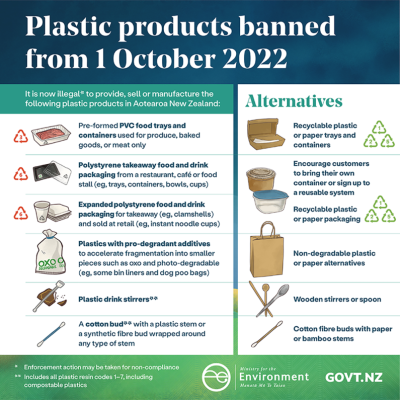
Europe: Single-Use Plastic Ban Enforced from 2021
The European Union (EU) took a historic step towards combating plastic pollution by passing a law to ban single-use plastic products. On October 24, 2019, the European Parliament (EP) approved the law with 571 votes in favor, 53 abstentions, and 34 blank votes.
The law bans products listed in the original 10 single-use plastic items created by the European Commission (EC), including straws, cotton buds, and balloon sticks. The objective is for EU countries to collect 90% of beverage bottles and other plastic items for recycling by 2025.
Moreover, the law urges EU countries to reduce non-recyclable plastics by at least 5% by 2025, cut 50% of cigarette-related waste, especially filters made of plastic, and strive to raise these rates to 80% by 2030.
Additionally, the law calls for EU countries to ensure that at least 50% of lost or discarded fishing gear containing plastic is collected annually. By 2025, they aim to recycle at least 15% of fishing gear, which currently accounts for 27% of all waste on European beaches. Fishing gear and tobacco producers will be responsible for covering the cost of collecting their products’ waste.
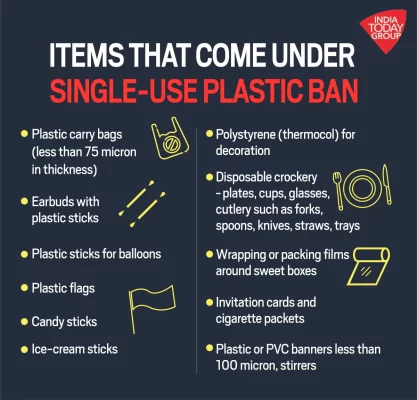
India: Single-Use Plastic Ban from 2022
India enforced a ban on single-use plastic products following a resolution in 2019 to tackle plastic waste pollution in the country. The ban covers most single-use plastic items, including grocery bags, food packaging, bottles, and straws, effective from July 1, 2022.
Environmental activists stress that effective enforcement is key to the success of the ban. They emphasize that New Delhi needs to address critical systemic issues such as regulating plastic alternatives, enhancing recycling efforts, and improving waste segregation.
Swati Singh Sambyal, an independent waste management expert in New Delhi, emphasizes that “India must strengthen its system to ensure compliance and ensure that the ban is enforced across industries and other related sectors.”
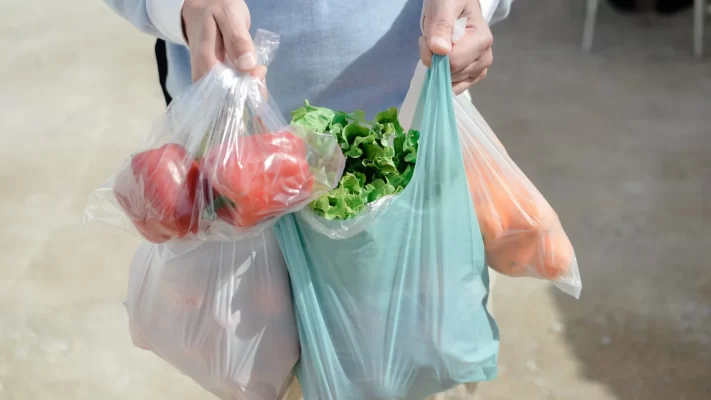
Japan: Reduction of 12 Single-Use Plastic Items from April 2022
The Japanese government mandated businesses to reduce the use of 12 single-use plastic items from April 2022. The move is in line with a law that took effect in June 2021, aimed at reducing plastic waste in restaurants and retail stores. Businesses have the flexibility to implement measures, including charging fees for using these products and transitioning to recyclable alternatives.
The items targeted for reduction include plastic tableware, straws, stirrers, spoons, forks, toothbrushes, shampoo bottles, and hangers. The new regulations will impact businesses that provide these products in large quantities, such as convenience stores, hotels, laundries, and pizza delivery companies.
Business owners are also encouraged to implement initiatives, such as rewarding customers who decline single-use plastic items that contribute to environmental pollution, making it a standard question to ask customers if they need plastic items when served. Non-compliant businesses will be advised or required to change their practices.
Taiwan (China): Ban on Single-Use Plastic Straws since 2019
Taiwan officially banned single-use plastic straws from 2019. Under this ban, customers who order takeaway or delivery with plastic straws will receive compensation for not using the product.
The ban applies to government agencies, schools, convenience stores, supermarkets, and fast-food chains. First-time offenders receive a warning and face fines ranging from TWD 1,200 (approximately USD 38) to TWD 6,000 for repeated violations.
The Environmental Protection Administration (EPA) also recommended that around 8,000 affected stores opt for alternatives such as paper straws, biodegradable plastics, bamboo, stainless steel, or silicone straws, as well as providing cups without straws. This new ban is estimated to significantly reduce the 3 billion plastic straws consumed annually in Taiwan.
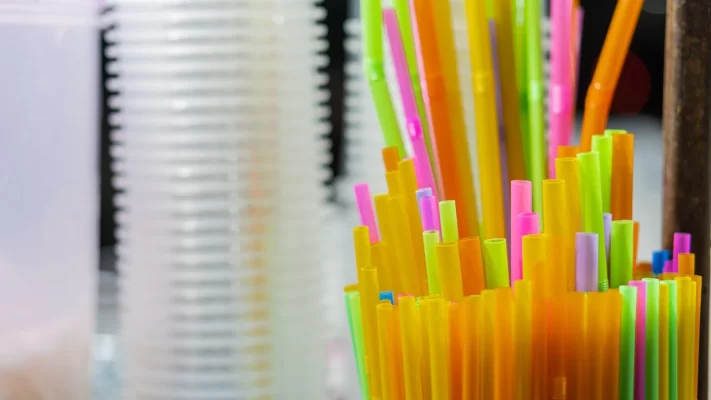
The global trend to ban single-use plastic products is a crucial step in combatting plastic pollution and safeguarding our environment. Countries and regions around the world are increasingly recognizing the urgent need to take action against the harmful impact of single-use plastics. By implementing bans and encouraging responsible alternatives, they are paving the way for a more sustainable and plastic-free future.
___________________________________________
Follow Vinbags for more interesting articles related:
How to reduce single-use plastic bags
Biodegradable Plastic: The Eco-Friendly Solution for Packaging in 2023
3 Best Eco-Friendly Packaging Ideas for 2023
